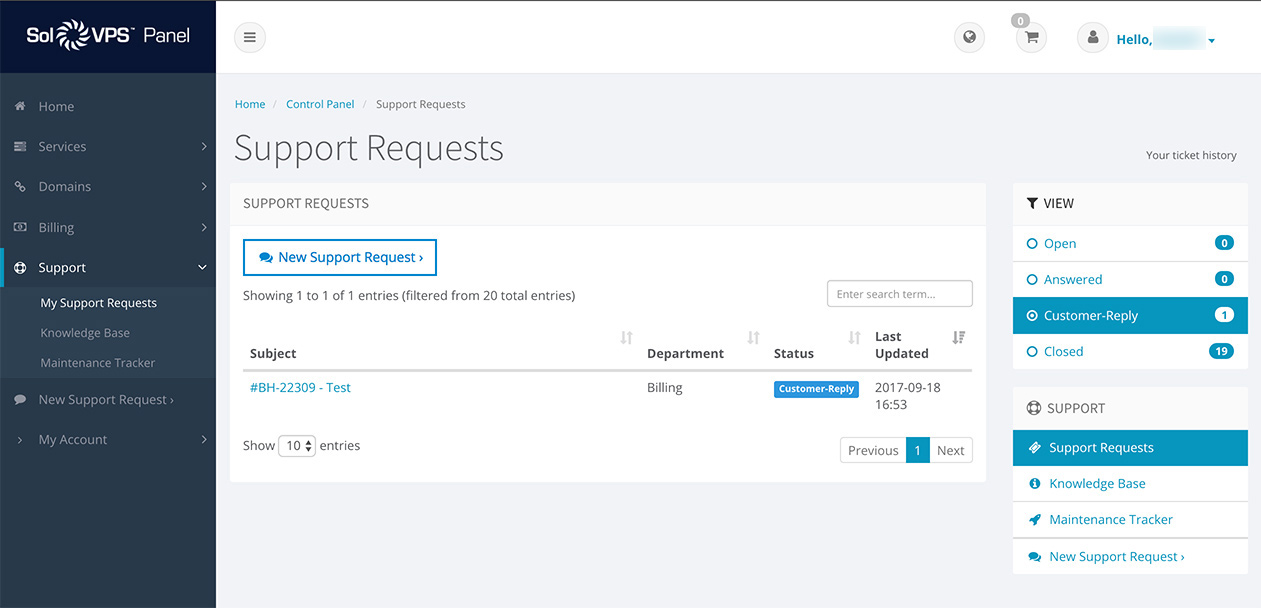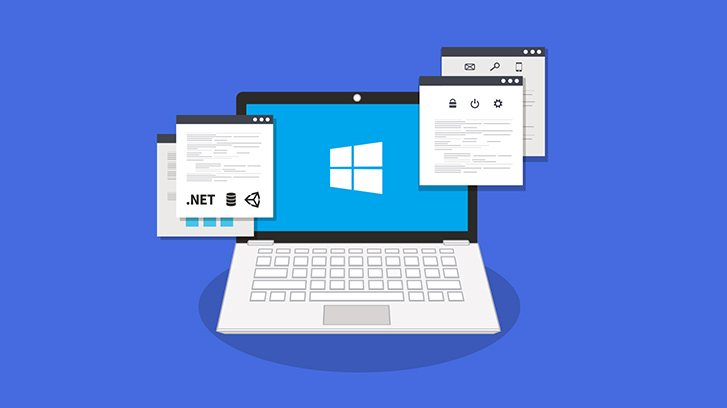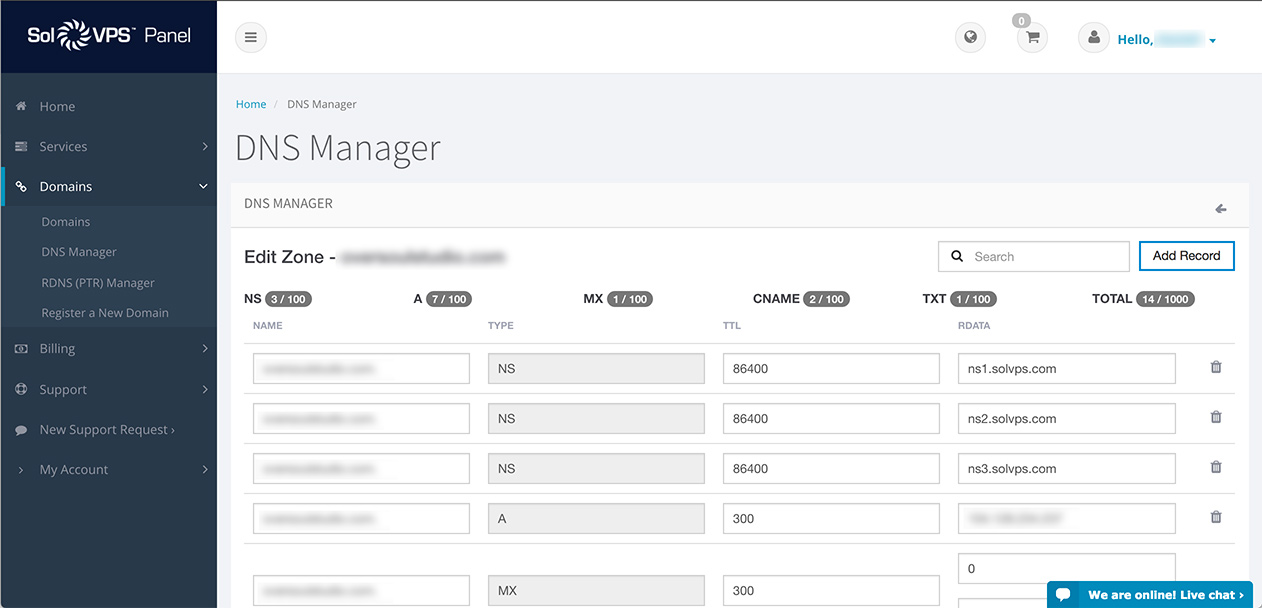Cloud Hosting
Cloud VMs with any
Linux distribution
Plans & Pricing ›
VPS hosting is high performance web hosting.
Instead of pooled community resources (as in 'shared hosting'), VPS hosting is defined by the availability of reserved server resources, much like a dedicated server, where there is 1 user for 1 physical machine. Enjoy the performance benefits of dedicated memory, storage, and CPU processing, reserved for your server. Not shared!
Use the secure SolVPS Panel to manage your hosting services, settings, support requests, and more. Some of the key features include:

Connect to a VPS from anywhere. Linux VPS and Windows VPS instances provide secure connection methods to remotely transfer files and manage the server.

Enjoy easy configuration of Forward and Reverse DNS records, and easily point domain names to virtual servers.

Virtual servers can run many applications. They are low-cost and easily expandable servers that can be configured to meet the needs of different applications, ideal for hosting:

